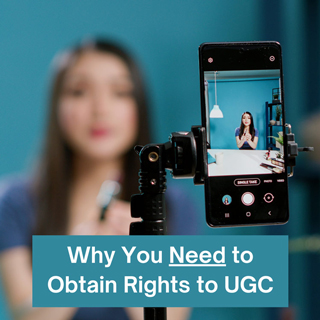How to Write, Post, and Enforce Official Contest Rules

Why Your Contest Needs Official Rules and Must Display Them
Contests don’t make the news because they are usually run fairly. However, when they do make headlines, you can bet somebody messed up big time. The best way to resolve an issue is by looking to the Official Rules for guidance – especially when there is a snafu. A recent example of a contest faux pas involves a winner who claimed the Sponsor wasn’t going to award him the prize.
Here is what happened: Robert Zeidman participated in the “Prove Mike Wrong Challenge” and won the $5 million dollar prize, but the sponsor refused to acknowledge the win and withheld the prize.
This is where Official Rules enter the conversation. Generally speaking, the rules describe who is eligible, how to enter, and what the prize is, but they also contain a “Disputes/Governing Law” section explaining how disputes will be settled. Most of the time, games of skill/chance are resolved using arbitration which is a well-established method to end disputes via the use of a neutral third-party who serves as a judge and ultimately is responsible for coming up with a resolution.
Challenging a Contest’s Outcome with Arbitration
Arbitration is exactly how this dispute in the “Prove Mike Wrong Challenge” was handled. The winner, Zeidman, took the sponsor to arbitration which is exactly what the Official Rules directed him to do. Each side picked an arbitrator who was joined by a third neutral arbitrator to resolve the issue. At the close of the proceeding, the sponsor of the contest, Mike Lindell (the “My Pillow Guy”), was ordered to award the prize to Zeidman. Read more about it at: https://www.nbcnews.com/politics/2020-election/mike-lindell-ordered-pay-5m-losing-election-data-challenge-rcna80644
Despite the ruling by all three arbitrators that the sponsor must pay Zeidman his $5 million dollar prize, Lindell has said that he will try to overturn the verdict in a federal court. Zeidman’s lawyers are not worried, and have stated, “There are virtually no grounds to appeal an arbitration verdict.” Indeed, the finality of arbitration – that is the outcome can’t be appealed – is one of the reasons this method of dispute resolution is widely favored in the promotion industry. While arbitration removes the option to take the proceeding to trial, it is also fair, speedy, low cost, and confidential.
You Can’t Just Write the Rules – You Need to Post Them Too
The Official Rules for a contest are not the sexy, fun component of a promotion. Honestly, people don’t read them until they need them and sponsors are sometimes reluctant to clearly and conspicuously disclose the Official Rules. But when things go awry, they are vital to maintaining fairness and legality because they serve as a contract between the sponsor and the participants. However, be warned: merely having Official Rules is not enough – they must also be posted.
In 2021, Root v. Robinson No. 5:20-cv-00239-M, 2021 U.S. Dist. LEXIS 5550 (E.D.N.C. June 23, 2021) determined that the contest sponsor had not sufficiently posted the Official Rules to participants. So, when the winner (i.e. Gaege Root) took his dispute to Federal Court, the sponsor (i.e. Robinson) was not able to move the proceedings to arbitration which was the plan of action specified in the Official rules. Further, even though the Official Rules were referenced in the Affidavit signed by Root, “The court held that Robinson did not meet his burden of proving that Root was aware of, saw, or agreed to be bound by the Official Rules.”
When you take a deeper dive into the Root v. Robinson case, you will find that other elements of the promotion structure were questionable but these elements (i.e. illegal lottery, deceptive advertising, false claims, etc.) were not addressed by the court whose only task was to figure out if the Official Rules bound the parties to arbitration or not. The key takeaway is to remember the onus is on the sponsor to clearly display and post the Official Rules to ensure they will be the governing document for the contest.
Ultimately, the Official Rules encapsulate the federal rules and laws that prevent shady behavior from a sponsor, an entrant, or a winner. However, be sure you conspicuously disclose them in all marketing and advertising as well as at the point of entry so they remain the governing document and arbitration clauses can be upheld if there is a dispute.


